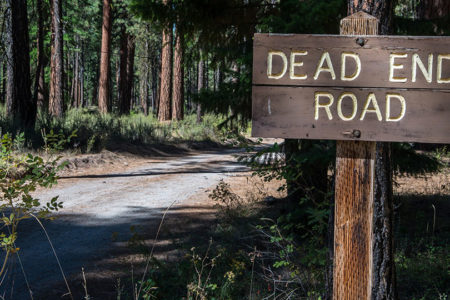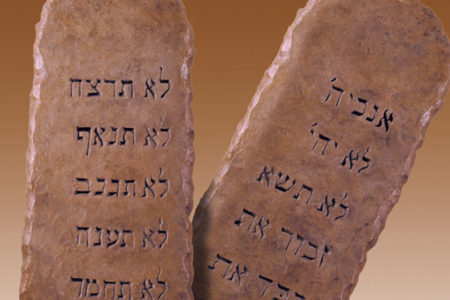Already/Not Yet?
Progressive Dispensationalism was introduced publicly through the 1992 publication Dispensationalism, Israel and the Church by Craig Blaising and Darrell Bock. Two more books, Progressive Dispensationalism by Blaising and Bock and The Case for Progressive Dispensationalism by Robert Saucy, were published in 1993.
The slogan that expresses the basic teaching of Progressive Dispensationalism is “Already/Not Yet.” It represents the view that claims there is a sense in which the future Kingdom of God foretold in the Old Testament is “already” here. But there also is a sense in which it is “not yet” here.
The Primary Teaching
Progressive dispensationalists claim the Kingdom is “already” here in a spiritual sense. When Christ ascended to heaven and sat down at the right hand of the Father on the throne in heaven, He assumed spiritual rule over the corporate body of saints, the church. He thereby established a spiritual form of the future Kingdom of God foretold in the Old Testament, they say.
But the future Kingdom of God foretold in the Old Testament is “not yet” here in a political sense. That form of the Kingdom will not be established until Christ returns to the earth at His Second Coming to administer God’s rule over the earth.
The Old Testament reveals that Messiah will sit on the throne of His ancestor David when He establishes the future Kingdom of God. That revelation, and the belief that Christ established a spiritual form of the future Kingdom of God when He sat down at the right hand of the Father on the throne of heaven, prompt the progressive dispensationalists’ conclusion that the throne of heaven is David’s throne.
This view is essentially the same as that of historic premillennial Covenant theologians. In that respect, Progressive Dispensationalism has moved one step toward Covenant Theology and away from traditional Dispensationalism (what we believe), which holds that no aspect of the future Kingdom of God foretold in the Old Testament has already been or ever will be established until Christ returns to the earth in His Second Coming after the Great Tribulation.
Inherent Problems
Problem 1. The location of David’s throne is critical to the progressive dispensationalists’ argument. They say it is in heaven. However, the throne of David cannot be equated with the throne of God in heaven. First, several descendants of David have sat on his throne; but only one descendant of David, Jesus Christ, ever sits on the throne of heaven (Heb. 12:2).
Second, David’s throne was established in his lifetime (2 Sam. 3:9–10). By contrast, since God has always ruled over His creation, His throne in heaven was established long before David’s throne (Ps. 93:1–2).
Third, God’s declaration to His Son, “Your throne, O God, is forever and ever” (Heb. 1:8, emphasis added), seems to indicate that God recognizes Jesus’ throne to be distinct from His throne in heaven.
Fourth, David’s throne was on Earth, not in heaven. David and his descendants who sat on his throne exercised an earthly rule and never ruled in or from heaven. Thus David’s throne is also called “the throne of Israel” by David (compare 1 Ki. 1:30 with 2:4) and Solomon (Jer. 33:17; compare 1 Ki. 3:6 with 8:20, 25). By contrast, the Bible indicates that God’s throne is in heaven (Ps. 11:4; 103:19).
Fifth, Scripture describes the throne in heaven as God’s throne (Lam. 5:19; Acts 7:49; Heb. 8:1; 12:2; Rev. 7:15; 12:5; 14:5). The Bible never calls God’s throne in heaven “the throne of David.”
Sixth, by contrast, the Bible’s description of David’s throne indicates that it belongs to David. When God talked to David about his throne, God referred to it as “your throne” (2 Sam. 7:16; Ps. 89:4; 132:12). When God mentioned David’s throne to others, He referred to it as “his [David’s] throne” (Ps. 89:29, 36; Jer. 33:21), “David’s throne” (Jer. 13:13), and “the throne of David” (Jer. 17:25; 22:2, 4, 30).
Seventh, Revelation 12:5 indicates that in His ascension, the Messiah was caught up to God’s throne, not David’s throne.
Eighth, several decades after Christ sat down on God’s throne He drew a distinction between that throne and His throne that He will sit on in the future (Rev. 3:21).
Problem 2. At the end of the article on Covenant Theology, I gave several reasons why no form of the future Kingdom of God foretold in the Old Testament was established when Christ sat down on the throne of God. An additional reason is the parable Jesus spoke to His disciples (Lk. 19:12–27) “because they thought the kingdom of God would appear immediately” (Lk. 19:11).
Through this parable, Jesus indicated that He would go away to heaven for an extended time to receive the future Kingdom of God foretold in the Old Testament. Once He received it, He would return to earth to establish it. Thus the future Kingdom of God would not be established until His second Coming, a long time after His ascension.






